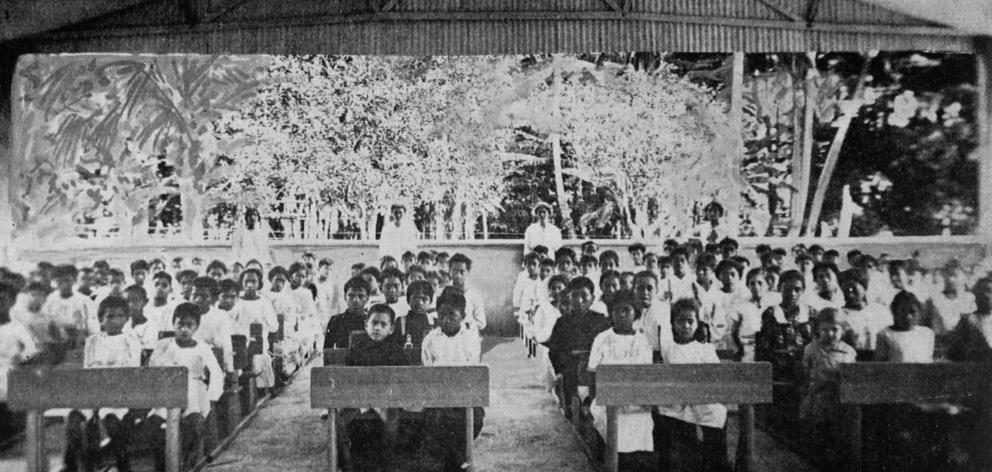
Ever since the statutory civil service has been thrown open to the natives the desire of the Indian people for an increased share in the government of the country has been steadily growing, It has long been recognised by far-seeing statesmen that the system of government which obtains at the present time could not long survive the spread of education in India, and the magnificent loyalty of the Indians and their splendid response to the appeals that have been made to them in the fight for freedom and civilisation have only rendered more insistent the pressure for a reform that was inevitable.
Nevertheless, the magnitude of the task of providing a scheme of self-government for a population so complex as that of India is one that might also appal even a nation with the peculiar colonising genius that has been displayed by the British .
Church union
Church union was the subject of discussion by the Auckland Presbytery on Tuesday evening. The Rev. Isaac Jolly said there was a general feeling throughout the Church in favour of union with certain other denominations, and Presbyterians in all parts of New Zealand had passed resolutions favouring the proposal. The war had emphasised the need for church union. Union did not mean uniformity. In the Anglican Church one section was strongly High Church in ideals, and another was just as strongly evangelical. In that Church, therefore, there was unanimity but not uniformity. Old tradition and historical grounds should not be a bar to church union.
Healthier troops
The immediate improvement which has been effected in the health of troops in New Zealand military training camps was referred to by Sir James Allen in an address at a public meeting at Helensville on Tuesday night. Sir James said that the camps were now probably the healthiest places in New Zealand.
New frog species
Stephen Island has yielded further additional specimens of small frog which is believed to be a new species. The matter will be in doubt till an expert opinion has been obtained from Sydney. The frog is found under rocks, of which the colour and markings are imitated in the creature's skin.
The feet, which are not webbed, indicate that the frog is neither a swimmer nor a tree-climber. Stephen Island has also produced a new beetle, of which specimens have been obtained by Dr Thomson.
Mice a problem
Statements have been recently been made as to the prevalence of mice in some parts of Wellington. At a local meeting the other night a nurse stated that about 2 o clock one morning, whilst driving to Karori in a motor car, she noticed swarms of mice crossing the Karori road in the neighbourhood of the viaduct.
The car was topped for a few moments, and the mice were plainly visible by the road light and the car lamp. The mice appeared to be making for the Karori tunnel.
- ODT, 11.07.1918.
COPIES OF PICTURE AVAILABLE FROM ODT FRONT OFFICE, LOWER STUART ST, OR WWW.OTAGOIMAGES.CO.NZ












